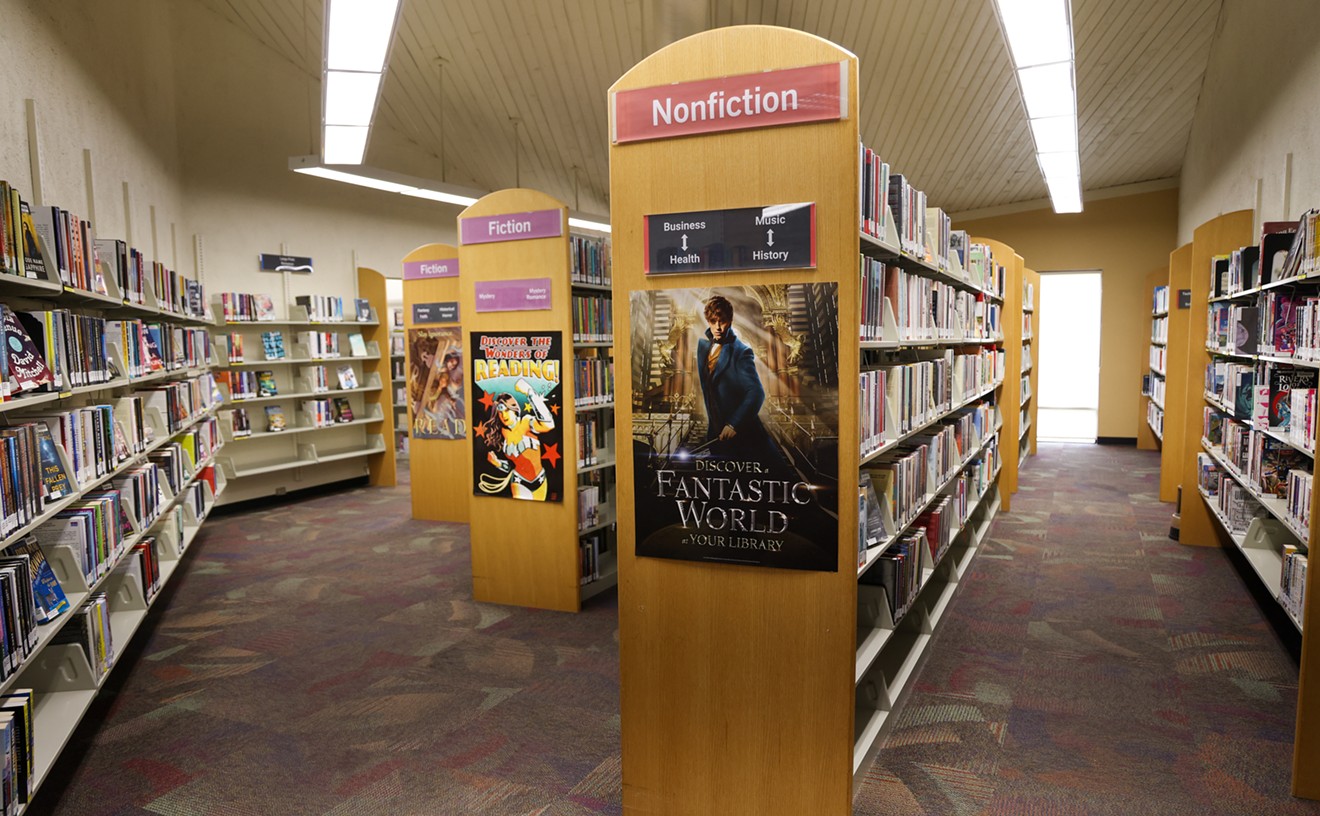The setup: Three American cities have hosted "tryout" productions this season of National Pastime, a new musical with an interesting little history and a super-adorable, relatively plausible premise. Its creators continue to project optimism about its suitability for Broadway, or at least they did before it opened at Theater Works.
Much better shows than this have closed within days of opening on Broadway, so I think the production team would have to kidnap someone really important to raise the necessary $9 million they estimate needing -- but that doesn't mean it isn't fun to watch in its current incarnation.
See also: Curtains: Miracle on 34th Street at Theater Works
Al Tapper, a former venture capitalist and/or leveraged buyout specialist, depending where you get your news, has always wanted to write a Broadway musical. He has written some musicals, so that part's in place. His collection of baseball memorabilia would probably attract enough people to fill a theater if a theater could afford to insure it.
Tapper's friends with Tony Sportiello, who wrote a one-act comedy for the Baseball Hall of Fame that has evolved, with years of development and Tapper's score, into National Pastime.
The execution: Hands down, the weak link here is Tapper's lyrics, which is unfortunate since he's the guy with the money and the dream. The show is still obviously a nicely paced screwball comedy with songs dropped into it, but that flow is not as hard to fix as the songs themselves, plentiful examples of Bad New Song syndrome writ large.
Most are melodies with superfluous, vague phrases written to fit them, phrases that often forgo a perfectly sensible word that would have resulted in a satisfying rhyme, almost as though the words were once there and have been replaced. Stress on odd syllables and other awkwardnesses abound. Two or three of the numbers are solid songs that are just in the wrong place in the action. No matter what, they tend to kill momentum.
Then there are the three Act I numbers that get the whole 14-person company spread out downstage for a big finish. These ironically provide unintended momentum -- the first one makes you think there's going to be an intermission right afterward, but there isn't. The second is cleverly called "If We Build It They Will Come," and I dry-swallowed my medication after I still saw no house lights on its heels. The third is the money shot, as balloons drop from the ceiling onto the audience. So now you know. (I don't think this is the "rule of three" writers talk about.)
Other critics have mentioned that the music itself is kind of pop-rocky for a show set in a small town in 1933. I was too overwhelmed by listening to the words to be even slightly bothered by that. Steve Hilderbrand's seven-piece pit band plays like champs. And the brisk harmony of the three Jingle Girls -- who mostly sing commercials and station IDs just the way they used to sound -- give the score its most successful moments.
I had trouble making out what the female soloists were singing over the accompaniment, but when I realized the lyrical content didn't matter, I was able to relax. My companion suggested that turning up the ladies' mics might have solved the problem. I'm not the queen of sound design, so I don't know, but it does seem that if you could fix that, you'd have done so by the third weekend of the run.
The show really is mostly enjoyable, with a juiced-up, talented cast nicely wrangled by David Vining, a well-crafted set from the reliable Thom Gilseth, striking costumes, and a witty script. The manager of Baker City, Iowa's radio station (Joe Kremer, from A Steady Rain, All New People, Dead Man's Cell Phone, and basically -- not to mention fortunately for us -- everything else) is already having trouble paying its staff when a smooth-talking Chicago lawyer (Sarah Wolter, leggy and fierce) shows up to further endanger WZBQ.
Of course, romantic sparks also fly, leading Kremer's character to deliver one of my favorite lines to Wolter's, consoling her about the dismal meet-cute story of her parents -- a woman who bought "invisible fish" 13 times and the charming carny who sold them to her: "Hey, anyone can sell a real fish." (I may be paraphrasing.)
Saving the station and the town involves resurrecting a defunct minor-league team -- but only on the radio. WZBQ's exclusive broadcasts of the undefeated Baker City Cougars, conveniently playing "in Europe," are not very different from early airings of real games, which were narrated by announcers based on teletype copy, with live sound effects. It's a super-fun device, even though we see it employed for only a few minutes a couple of times.
Everyone in the cast does a seriously terrific job, and it's definitely an ensemble show, with plenty of stage time and great moments for almost everyone. Singing voices are strong and sure all around, and Ian Christiansen (Sons of the Prophet, Heddatron, Body Awareness) stands out as Joe Miller, a heart-of-gold Windy City gangster recruited to impersonate the Cougars' ace center fielder for photographs and interviews from places like "Portugal" via the dubious magic of radio.
Christensen's unerringly smooth seduction of WZBQ staffer Mary (Anne-Marie O'Reilly, who gets to belt holy hell out of another out-of-nowhere solo that tries to provide backstory but delivers only WTF?) is solid gold. Receptionist Betty Lou (played by Alanna Kalbfleisch, who I hope never changes her name) dreams of Hollywood and gets funnier and bigger and weirder, in an endearing fashion, as the high jinks roll on, nailing a later scorcher, "Watch Me Shine," whose lyrics actually work for her character and situation, marred only by the skid marks left by the plot screeching to a halt so that she can sing it.
The verdict: "Plucky" and "spunky" are the words that come to mind to describe the lovable loons of National Pastime. Unless you are Lou Grant, you will probably laugh and root for them at the same time. It's possible that, if the show's authors never stop dreaming, they will also never stop rewriting. As it is, though, don't tell yourself you're getting in on the ground floor of anything.
National Pastime continues through Sunday, March 30 (which is currently sold out), at 8355 West Peoria Avenue. Admission is $11 to $31. Purchase tickets here or call 623-815-7930.











